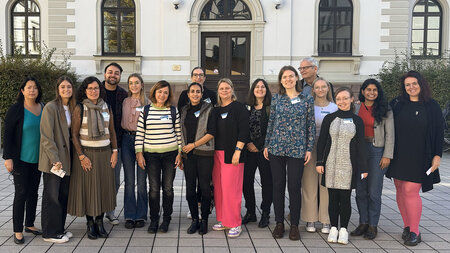Courses offered in English Language
| Course name | Sensory Marketing | |
| Lecturer, Professorship | Prof. Dr. Marcel Lichters , BWL II Professorship for Marketing |
|
| Term | Winter/Fall | |
| Course level | Graduate (Master) | |
| CP (ECTS) | 5 | |
| Course description | An appropriate framework to discuss consumers’ perception of products and external information is Sensory Marketing, a broad, but popular domain in Marketing and Consumer Psychology. In an essence, Sensory Marketing can be understood as “marketing that engages the consumers' senses and affects their perception, judgment and behavior.” (Krishna, 2012, p. 332). Therewith, Sensory Marketing becomes an omnipresent topic in many marketing applications ranging from online retailing (which usually does only provide limited sensory input), over customer satisfaction with their service experience, to the optimal formulation of product recipes in domains such as food and beverage, but also personal care and cosmetics industry. We mainly focus on the influence of ambient scents, quantitative methods in sensory product research, and haptic perception. Contents (vary from year to year):
Literature: |
|
| Further information on the course | The lecture is accompanied by an exercise in which students discuss recent research articles published in marketing and consumer research journals. In the exercises students also analyze datasets applying statistical methods. |
|
| Sign-up procedure | More Informations and enrollment is also provided via OPAL-Platform and via the chair's web page prior the semester start. |






